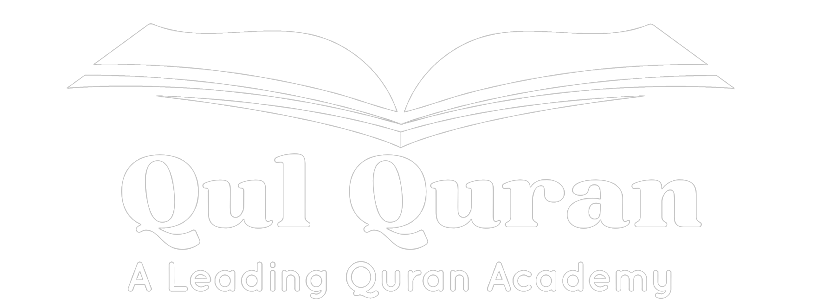Home » Noorani Qaida
Learn Noorani Qaida Online – Best Foundation Course for Beginners
Learn Noorani Qaida online with skilled tutors for correct Arabic pronunciation! We help kids read Arabic Qaida with proper Tajweed rules. Join our Qaida classes today!
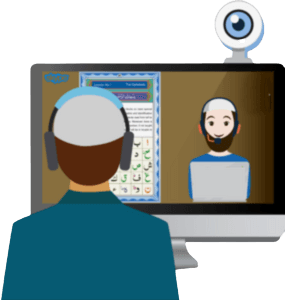
Male & Female Teachers
Friendly Nature
24/7 Customer Support
Do You Think Learning Quran is Too Difficult? Well, That May Not be the Case Anymore!
Learning Quran seems to be mentally demanding for noorani qaida boy and adults.
Spending 7 hours at school or work and then coming home and going online to learn Quran is very difficult to manage.
However, that’s not the case when you join hands with QulQuran.
We help you and your children cover the basics through Noorani Qaidah – which is the root course for beginners.
We make things easier and simpler. How?
- We won’t overburden you.
- We keep things easy.
- We have innovative programs.
- We are available 24/7.
- We implement exciting techniques.

How We Help Learn Noorani Qaida Online?
We follow a unique approach when it comes to teaching Noorani Qaidah
- Arabic alphabets
- Quran Phonetics
- Sukkun
- Shaddah
- Vowels
- Letter forms
- Laam rules
- Madd – lengthening
- Arabic diacritics
- Shaddah with Tanween
- Find examples from Quran
- Practice repeatedly
- Recording of practice
- Video watching technique
- Readout loud
Why Learn Noorani Qaidah?
There are plenty of benefits to learning Noorani Qaidah, such as
Recognizing Arabic letters
Correct form and pronunciation
Learn Arabic vowels
Teaches how to read Quran
Basic understanding of words
It helps learn Arabic rules
In Our Noorani Qaidah Course, You Will Learn
Singular Arabic
Alphabets
Alphabetical & Non - Alphabetical Order
Practice of Joining & Compound letters
Short & Long vowels movement
Wakf and the rules
Nunnation & Rules of Noon
Why Choose QulQuran for Noorani Qaidah?

Offers curriculum-based testing

Qualified and skilled tutors

24/7
availability

Frequent evaluations and testing

Observations and interactions

Innovative teaching approach
See What Our Students Say


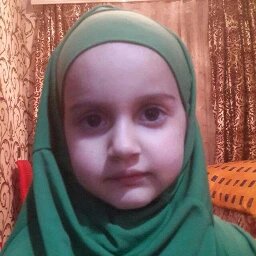
3 Steps to Start

Enroll
Enroll yourself in the Noorani Qaidah course for beginners
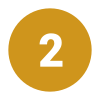
Join the Trial
Join our 3 days of trial, ask questions, and continue learning with us.

Start Learning
After completing the trial, start learning Qaidah and get more details from us.
Let's Schedule 3 Days Trial Classes For Free
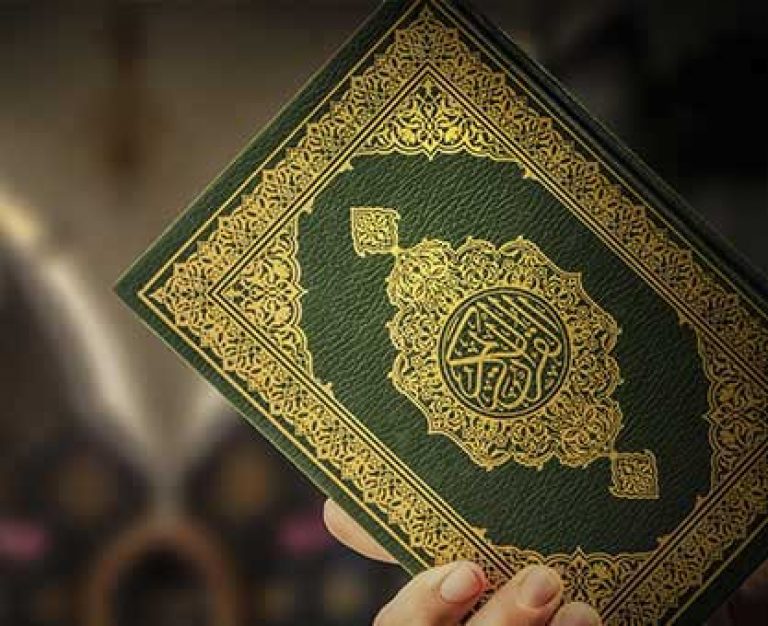
Easy and Fun Noorani Qaida Online Classes – Right from Your Living Room!
Online Noorani Qaida classes do not take much time. It becomes very accessible for you if you want to learn Noorani Qaida right from your home. Most people are not able to get access to learn Noorani Qaida and Quran from their areas and cities. However, some have busy schedules and do not match their timings with madrasa time.
Similarly, few of them are living in non-Muslim countries and are not able to find any institute to learn Noorani Qaida. Therefore, Online classes will be an option for such people to learn Noorani Qaida at home. It will be the best opportunity for them to learn Noorani Qaida easily. The course of Noorani Qaida depends on your level of understanding. If you can acknowledge it properly then it does not take much time to learn.
All the rules are understandable to you if you cooperate with your tutors and learn effectively. Furthermore, there is no limitation on gender in this course. It is for kids, women, men, and for beginners. Teachers will guide you if you are a beginner or a kid. You can learn Noorani Qaida in your comfort zone.
What Lessons Are Included in Noorani Qaida?
Lesson 1 – Arabic Letters
There are twenty-eight alphabets in Noorani Qaida. It includes some bold letters which you need to pronounce boldly and some are soft letters. You need to distinguish between bold and soft sounds and also know which alphabets share similar shapes and similar sounds.
Lesson 2 – Compound letters
Compound letters are also known as join letters. The alphabets are joined with each other and you have to find differences if they share similar shapes. For example, when Laam and Alif joined it seemed to be difficult to analyze which is Laam and which is Alif.
Lesson 3 – Muqatta’at letters
In this lesson, three basic symbols are introduced. The first one is Maddah, Saddah, and Standing Kasrah. Saddah is the sign that appears above the letter then it is pronounced two times. Standing kasrah is prolonged for three seconds and Maddah is prolonged for six seconds.
Lesson 4 – Movements and Short Vowels
There are three movements in this lesson. Kasrah which is below the letter, Dammah, and Fathah which is above the letter but with different sounds. They do not need to be prolonged and not even read with a tug.
Lesson 5 – Tanween
Double Kasrah, Dammah, and Fathah are known as Tanween. One more thing is Ikhfa. It is like when you hide the sound in the nose.
Lesson 6 – Tanween and Movement
In this lesson, you should know how to connect the letters with tanween and movement. It is essential to connect them properly. If You cannot do it then revise the previous lessons.
Lesson 7 – Standing Kasrah, Fathah, and Dammah
They prolonged to the equal of one Alif. The Standing Fathah is equal to Alif maddah. Wao Maddah is equal to Standing Dammah and Standing Kasrah is equal to Yaa Maddah.
Lesson 8 – Maddoleen
Madd is that if a letter has Fathah before Alif then it is known as Alif Maddah. Similarly, if wao has Sakin and the letter has dammah is wao Maddah. Leen is that if the letters Yaa and Wao have Sakin after Fathah then they are known as Leen Letters.
Lesson 9 – Exercise of Signs
The lesson is about the symbols and how they are pronounced when spelled separately and how they produce sounds when the letters are joined with all these symbols.
Lesson 10 – Sukoon and Jazm
Skoon and Jazm are similar symbols. After this lesson, you can answer what a Jazm is, and how it is read and pronounced.
Lesson 11 – Exercise of Sukoon
The main idea you can get in this lesson is about waqfa and bold letters. You will know where you should stop and which letters should be bold.
Lesson 12 -Tashdeed
You may be learning about the symbol of Tashdeed. It helps you to recognize what Tashdeed looks like. Tashdeed is pronounced two times with a strong voice.
Lesson 13 – Exercise of Tashdeed
Gunnah is the main notion in this lesson. You will learn where you have to Gunnah and where you shouldn’t. Gunnah is always produced in Meem and Noon Sakin.
Lesson 14 – Tashdeed with Sukoon
Two symbols are prominent in this lesson. Tashdeed and Skoon. The letters that have Skoon do not contain harkat. The function of Tashdeed you would already learn in previous lessons.
Lesson 15 – Tashdeed with Tashdeed
The preceding letters and the next letters contain Tashdeed. First, you need to spell them and then pronounce them.
Lesson 16 – Tashdeed with Haroof Maddah
This lesson will teach you how to connect letters. You should keep in mind that the maddah sign should be prolonged for six seconds.
Lesson 17 – Ending Rules
It is like an assessment for you whether you learned previous lessons efficiently or not. It is the summary of all lessons along with all symbols.
Frequent Ask Question
Noorani Qaidah has 17 chapters in total in which you learn the Arabic Alphabet and Arabic words, and then read complete verses from Quran.
There are 51 pages in Noorani Qaidah. We help our students learn easily and quickly through comprehensive guides and instructions.
There are lots of benefits to learning Noorani Qaidah. It helps you correct your form and pronunciation, allows you to understand Arabic words, and makes you fluent in reading Quran.
With our proficient and fluent tutors, it won’t take more than 2-3 weeks in completing Noorani Qaidah. However, it also depends on the learning abilities of students.
Yes, of course. We have a group of female tutors who help you learn Noorani Qaidah based on your requirements.
